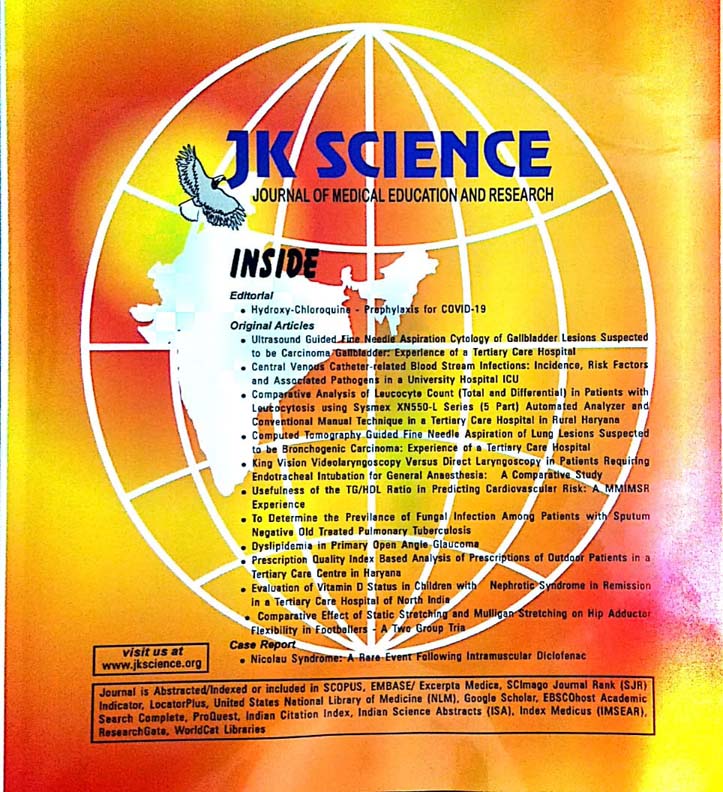Etiological Profile of Patients with Lower Gastrointestinal Bleed Undergoing Colonoscopy in a Tertiary Care Center
Keywords:
Lower Gastrointestinal Bleed, Colonoscopy, Haemorrhoids, Ulcerative ColitisAbstract
Introduction: Lower gastrointestinal (GI) bleed is defined as the blood loss from gastrointestinal tract distal to the ligament of Treitz. Studies reporting etiology of lower GI bleed is limited from India, more so from northern India.
Purpose: This study was conducted with the aim to look at the causes of lower GI bleed found during colonoscopy, in a tertiary care centre (located in rural area) of Northern India.
Material and Methods: In this hospital-based study, 120 patients (age more than 18 years) who underwent colonoscopy for evaluation of overt lower GI bleed between September 2019 to April 2020, were included.
Results: The overall mean age of the study group was 41.46 ± 15.53 years. Male to female ratio was 1.6:1. The most common cause of bleeding per rectum was found to be ulcerative colitis (40%) and it was followed by the second most common cause – hemorrhoids (30.83%). Malignancy of the colon was found in 8.33%. Results were analyzed separately for the patients above 60 years (N=8) of age. It was observed that colon cancer (37.5%) was the commonest cause of lower GI bleed in this age group.
Conclusion: In this study, the commonest cause of lower gastrointestinal bleed varied as per the age and gender i.e., while ulcerative colitis was the commonest cause overall and among females but hemorrhoids and colonic malignancy were the predominant cause among males and elderly (≥60 years) age group respectively.
Downloads
Downloads
Published
How to Cite
Issue
Section
License
Copyright (c) 2021 JK Science: Journal of Medical Education & Research

This work is licensed under a Creative Commons Attribution-NonCommercial-ShareAlike 4.0 International License.





